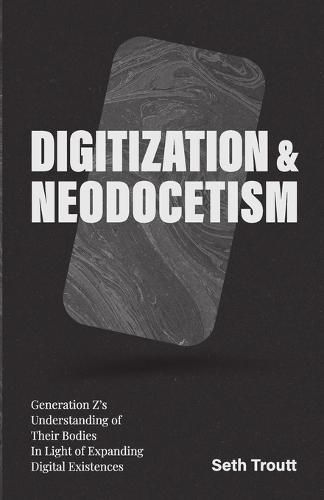Readings Newsletter
Become a Readings Member to make your shopping experience even easier.
Sign in or sign up for free!
You’re not far away from qualifying for FREE standard shipping within Australia
You’ve qualified for FREE standard shipping within Australia
The cart is loading…






This title is printed to order. This book may have been self-published. If so, we cannot guarantee the quality of the content. In the main most books will have gone through the editing process however some may not. We therefore suggest that you be aware of this before ordering this book. If in doubt check either the author or publisher’s details as we are unable to accept any returns unless they are faulty. Please contact us if you have any questions.
The purpose of this study is to examine how Christian therapists and professors describe the impact of digitization on Generation Z's bodily self-concept. Generation Z has grown up with phones in their hands and with their friends in their phones. Pastors must consider the effects digitization will have on the iGen and give substantial reflection on how digitized ecclesiologies contribute to gnostic instincts in the information age. This study utilized a qualitative design using semi-structured interviews with seven Christian therapists and professors with extensive experience working with Generation Z. The interviews focused on gaining data with three research questions: 1) How do Christian therapists and professors describe Gen Z's self-understanding of their bodies? 2) How do Christian therapists and professors describe the impact of digitization on Gen Z's views of their bodies? 3) How do Christian therapists and professors advise ministry leaders to minister to Gen Z concerning Gen Z Christians' views of their bodies? The literature review focused on four key areas to understand ministry in this context: theology of the body, theology of technology, digital effect on bodily self-concept, and Generation Z's relationship with digitization. This study concluded that digitization contributes to overly developed dualistic instincts in Generation Z. This reduces personhood to cognition, promotes dissociative tendencies regarding bodily processes, dislodges the self from place, and fragments self-concept. Ministry leaders ought to resist the effects of digitization by means of teaching a robust theology of the body, training parents, facilitating embodied experiences, and helping Generation Z see the goodness of congruence in Christ.
$9.00 standard shipping within Australia
FREE standard shipping within Australia for orders over $100.00
Express & International shipping calculated at checkout
This title is printed to order. This book may have been self-published. If so, we cannot guarantee the quality of the content. In the main most books will have gone through the editing process however some may not. We therefore suggest that you be aware of this before ordering this book. If in doubt check either the author or publisher’s details as we are unable to accept any returns unless they are faulty. Please contact us if you have any questions.
The purpose of this study is to examine how Christian therapists and professors describe the impact of digitization on Generation Z's bodily self-concept. Generation Z has grown up with phones in their hands and with their friends in their phones. Pastors must consider the effects digitization will have on the iGen and give substantial reflection on how digitized ecclesiologies contribute to gnostic instincts in the information age. This study utilized a qualitative design using semi-structured interviews with seven Christian therapists and professors with extensive experience working with Generation Z. The interviews focused on gaining data with three research questions: 1) How do Christian therapists and professors describe Gen Z's self-understanding of their bodies? 2) How do Christian therapists and professors describe the impact of digitization on Gen Z's views of their bodies? 3) How do Christian therapists and professors advise ministry leaders to minister to Gen Z concerning Gen Z Christians' views of their bodies? The literature review focused on four key areas to understand ministry in this context: theology of the body, theology of technology, digital effect on bodily self-concept, and Generation Z's relationship with digitization. This study concluded that digitization contributes to overly developed dualistic instincts in Generation Z. This reduces personhood to cognition, promotes dissociative tendencies regarding bodily processes, dislodges the self from place, and fragments self-concept. Ministry leaders ought to resist the effects of digitization by means of teaching a robust theology of the body, training parents, facilitating embodied experiences, and helping Generation Z see the goodness of congruence in Christ.